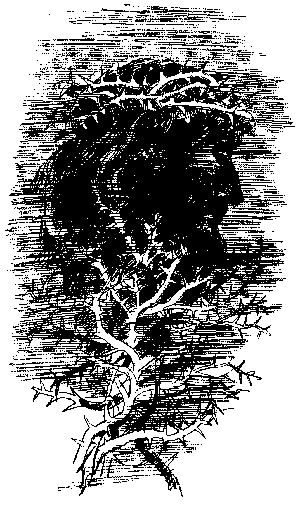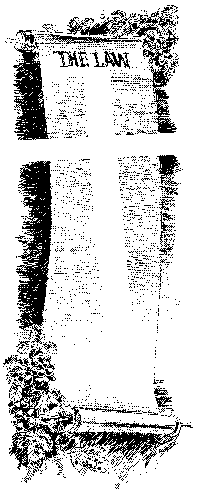 Christ and the Obligatory Covenants Christ and the Obligatory Covenants
Christ and the Adamic Covenant
God made a covenant with Adam, who was the legal head and representative of the race. He was promised immortality for himself and his posterity on the grounds of perfect righteousness or whole-hearted obedience to the will of God. Some have called this "the covenant of works."1 Others, not liking the sound of these words, have called it "the covenant of life."2
Holmes Rolston, III, in his John Calvin Versus the Westminster Confession (John Knox Press), thinks that this whole idea of the covenant of works is a legalistic denial of God's grace. But Rolston confuses that which is legal with legalism.3 He fails to see that a covenant requiring perfect obedience of Adam was not inimical to God's graciousness. In the first place, Adam's life was a gracious donation by God. As Calvin well said, God's paternal solicitude for man was conspicuous in that He "furnished the world with all things needful, and even an immense profusion of wealth, before he formed man. Thus man was rich before he was born." —Institutes, Bk. 1, chap. 14, sec. 22. Adam was amply endowed with all necessary gifts and well qualified to perform the stipulations of the covenant. To promise him immortal life on condition of perfect righteousness was like promising him life if he continued to breathe — for it was as natural and as easy for Adam to love God and serve Him in whole-souled obedience as it was for him to breathe. That God promised Adam and all his posterity immortal felicity on such easy conditions (for Adam could, after all, only return to God what had been graciously bestowed upon him) was evidence of the exceeding graciousness of God. The promised reward was out of all proportion to Adam's easy task. There was nothing harsh about this "covenant of works." It was a just covenant which required no more and no less of man than he could justly be required to render.
Yet Adam failed — without cause or reason — and the whole race whom he represented became sinners before God (Rom. 5:18,19). The curses of the broken covenant were invoked. The earth was cursed to bring forth thorns. Man was cursed to sweat and struggle for existence until the covenant breach exacted its full penalty in death (Gen. 3:17-19).
 Christ stood related to this covenant in that He was the second or last Adam (Rom. 5:12-19; 1 Cor. 15:4547). He too was the Head and Representative of humanity, for in His incarnation He assumed human nature — not the nature of some kind of people, but the nature common to all. In Adam's room (and in ours) He was man in God's image, man as man was meant to be in perfect obedience to God's will ("I have kept My Father's commandments," John 15:10). Christ stood related to this covenant in that He was the second or last Adam (Rom. 5:12-19; 1 Cor. 15:4547). He too was the Head and Representative of humanity, for in His incarnation He assumed human nature — not the nature of some kind of people, but the nature common to all. In Adam's room (and in ours) He was man in God's image, man as man was meant to be in perfect obedience to God's will ("I have kept My Father's commandments," John 15:10).
While Matthew the Jew, for obvious reasons, traces Christ's genealogy back to Abraham, Luke the Gentile traces Christ's genealogy back to Adam (Luke 3:23-38). For Christ stands related, not just to Israel and to her covenant, but to the whole world and the covenant which God first made with the world in the person of Adam.
Not only must this second Adam fulfill the stipulations of the Adamic covenant (i.e., perfect righteousness of life, Rom. 5:18, 19), but He must also bear its curses. In the crown of thorns which He wore, in His sweat of blood and tears in Gethsemane, and in His death outside the gate of Jerusalem, Christ is clearly linked to the curses of Genesis 3. As the second Adam we see Him, not as the One who dies for the Israel of God, but for Adam — which means mankind or the whole world (1 John 2:2). Hence the significance of His death outside the gates of Jerusalem (Heb. 13:12).
So the work of Jesus in relation to Adam's covenant was twofold. In His life of perfect obedience to God He fulfilled the stipulations of the covenant; in death He carried away the covenant curses. This is why the curses did not fall upon Adam and his posterity with unabated force. They were tempered with mercy and became means of discipline and blessing to the fallen race.
Christ and the Sinaitic Covenant
The stipulations of the Sinaitic covenant are the same as those of the Adamic covenant — perfect righteousness or obedience to the will of God. This is so because the conditions for fellowship with God are always the same. The only difference is that at Sinai the stipulations are specifically spelled out for the first time. This is in keeping with the progressive nature of. revelation which is contained in the Bible.
And the Lord said unto Moses, Write thou these words: for after the tenor of these words I have made a covenant with thee and with Israel. And he was there with the Lord forty days and forty nights; he did neither eat bread, nor drink water. And he wrote upon the tables the words of the covenant, the Ten Commandments. And it came to pass, when Moses came down from Mount Sinai with the two tables of testimony [Hebrew, edut] in Moses' hand . . . —Ex. 34:27-29.
And He declared unto you His covenant, which He Commanded you to perform, even Ten Commandments; and He wrote them upon two tables of stone. —Deut. 4:13.
The stipulations of the covenant between God and man are the Ten Commandments or testimony (edut). In the Scriptures these commandments are often celebrated as "righteousness" (as in Psalm 119:142, 144, 172), for they constitute the most succinct expression of God's perfect will for man. This moral law is not righteousness created but righteousness made know — the transcript of God's own righteous nature. If man is to image God, the edut enunciates what that means. This law is exceeding broad; it is perfect and spiritual (Ps. 119:96; 19:7-11; Rom. 7:14). The commandments are "holy, and just, and good" (Rom. 7:12).
Commenting on the Ten Commandments, John Calvin says:
The law of God contains perfect righteousness . . . We therefore willingly confess that perfect obedience to the law is righteousness, and that the keeping of each commandment is a part of righteousness; provided that in the remaining parts the whole sum of righteousness is contained. —Calvin, op. cit., Bk. 3, chap. 17, sec. 7.
. . . righteousness consists in the observance of the law. —Ibid., Bk. 2, chap. 17, sec. 5.
For the Lord promises nothing except to perfect keepers of His law, and no one of that kind is to be found. —Ibid., Bk. 3, chap. 17, sec. 1.
 When Israel broke the covenant stipulations, she stood exposed to the covenant curses. In Leviticus and Deuteronomy 28 to 30 these curses come in handfuls. They are awful threats which may on first sight appear to be out of all proportion to the sins committed. But sin, being a breach of the covenant, is an affront to the covenant God and an insult to His infinite majesty. The prophets invoked these covenant curses against disobedient Israel. The curses include hunger and thirst (Deut. 28:48; Isa. 65:13), desolation (Isa. 5:6; Zeph. 1:15), poverty (Deut. 28:31), the scorn of passers-by (Jer. 19:8), darkness (Isa. 13:10; Amos 5:18-20), earthquake (Isa. 13:13; Amos 1:1), being "cut off" from among the people (Ex. 12:15,19; 31:14; Lev. 7:25; Jer. 44:7-11), death by hanging on a tree (Deut. 21:23), a brass heaven (Deut. 28:23), and no help when one cries for help (Deut. 28:31; Isa. 10:3). When Israel broke the covenant stipulations, she stood exposed to the covenant curses. In Leviticus and Deuteronomy 28 to 30 these curses come in handfuls. They are awful threats which may on first sight appear to be out of all proportion to the sins committed. But sin, being a breach of the covenant, is an affront to the covenant God and an insult to His infinite majesty. The prophets invoked these covenant curses against disobedient Israel. The curses include hunger and thirst (Deut. 28:48; Isa. 65:13), desolation (Isa. 5:6; Zeph. 1:15), poverty (Deut. 28:31), the scorn of passers-by (Jer. 19:8), darkness (Isa. 13:10; Amos 5:18-20), earthquake (Isa. 13:13; Amos 1:1), being "cut off" from among the people (Ex. 12:15,19; 31:14; Lev. 7:25; Jer. 44:7-11), death by hanging on a tree (Deut. 21:23), a brass heaven (Deut. 28:23), and no help when one cries for help (Deut. 28:31; Isa. 10:3).
Christ stood related to God's covenant with Israel inasmuch as He was the Son of Abraham (Matt. 1:1), the Seed of Israel (Gal. 3:16), and the King of the Jews (Matt. 2:2). He was Israel personified. In Hebrew thought the king represented the whole nation—he was the one in whom the many were incorporated.4
In Isaiah 41 to 53 there is an interesting interplay between Israel and the Messiah. Both are called "the servant of Yahweh." It is sometimes difficult to know who is being referred to—Israel or the Messiah. This mingling of identity in Isaiah is quite deliberate, because the suffering Messianic Servant stands for Israel in such a way that He is Israel personified.
Matthew's account of Christ's temptation in the wilderness is very obviously a reminder, or perhaps we could say a replay, of Israel's exodus from Egypt and testing in the wilderness. Christ too is called out of Egypt (Matt. 2:15) and is later tested in the wilderness (cf. Deut. 8:3; Matt. 4:4). He passes over the same ground as Israel and makes amends for her failure. Whereas Israel is impatient and murmurs against God, Christ patiently submits to the will of God. In the Person of her King, Israel is victorious and altogether pleasing to God (Matt. 3:17). Christ stands before God as Israel stood at Mount Sinai. He obligates Himself to carry out all the covenant stipulations. He makes the vow, "All that the Lord hath said will we [I] do, and be obedient."
The righteousness of Christ consisted in His faithfully fulfilling the stipulations of the covenant. These stipulations were embodied in the Ten Commandments or testimony. Christ's holy obedience to each commandment of the Decalogue constituted a part of His perfect righteousness or we could say, Israel's righteousness (Jer. 23:6). The Decalogue became flesh-and-blood reality in Jesus Christ.
Not only must Christ fulfill the stipulations of the Sinaitic covenant; He must also carry away those terrible curses pronounced in the covenant documents. For this reason He was hungry (Matt. 4:2; 21:18) and was so poor that He had nowhere to lay His head (Matt. 8:20). On the cross He cried, "I thirst!" (John 19:28). He was mocked and derided (Mark 15:29, 31) and deserted by His friends (Matt. 26:69-75). He was hanged on a tree as a cursed man (Gal. 3:13) and "cut off" from His people (Isa. 53:8). As He hung on the cross, the heavens were as brass. He was as one who cries for help and receives none (Mark 15:34). He died as the great covenant breaker and endured the unabated fury of all the covenant curses. Even the cosmic scope of the curses is portrayed in Matthew. As Christ bore the sins of the broken covenant, darkness descended over the earth (Matt. 27:45), the ground quaked, and the rocks were rent (Matt. 27:51). But by dying Jesus carried away the curses of the covenant.
The Mediator
When Christ cried, "It is finished!" (John 19:30), He addressed His Father. Before the creation of the world the Father and the Son had entered into the solemn covenant that Christ would stand surety for Adam and Israel. Now Christ had carried out the terms which He undertook. By His sinless life He had wrought out a robe of unstained righteousness, and by dying He had borne all the curses due to the "transgressions under the first covenant" (Heb. 9:15, RSV). It was in full consciousness that He had completed His part of the eternal compact that Christ's last words were a cry of victory. Having completed His work, He rested His case in the hands of the God of the covenant.
In the resurrection and the inaugural session at the right hand of God, the Father fulfilled His covenant promises. All power in heaven and earth was given into the hands of this second Adam and this King of the Jews. He was given the heathen and the ends of the earth for an inheritance (Ps. 2:8). To Him was given the rich promise of the Holy Spirit on behalf of His people (Acts 2:33). The resurrection proclaims the election of Jesus Christ as the Man of God's own choosing.5
As perfect God and perfect Man, Christ was qualified to be the Messenger, Confirmer and Mediator of the covenant (Mal. 3:1; Dan. 9:24-27; Heb. 8:6). In Him man (Adam and Israel) fulfilled all his obligations to God, and in Him God fulfilled all His promises to man (2 Cor. 1:20; Eph. 1:3; Acts 13:32, 33). In death the Son completed man's side of the covenant transaction, and in Christ's resurrection God fulfilled His side of the covenant transaction. In Christ, God and man have become one in a covenant union which can never be dissolved.
———————————————
Footnotes:
1 E.g., The Westminster Confession.
2 E.g., K.M. Campbell, God's Covenant, p.13.
3 Legal is lawful, rightful. God is a God of law, and His great redemptive act in Christ was a legal atonement. Legalism is a perversion of the legal; it is not legal but illegal. Rolston's argument may sound plausible, but it is the great fallacy of liberalism, which tries to discredit law and the legal categories of the Bible by confusing them with legalism.
4 For example, when King David, who represented Israel, sinned in numbering the people. God punished the people.
5 Gospel preaching is preaching the good news of the election of Jesus Christ. The election of Jesus Christ is the subject of the first Christian sermon ever preached (see Acts 2:22-36).
|
 Christ and the Obligatory Covenants
Christ and the Obligatory Covenants Christ stood related to this covenant in that He was the second or last Adam (Rom. 5:12-19; 1 Cor. 15:4547). He too was the Head and Representative of humanity, for in His incarnation He assumed human nature — not the nature of some kind of people, but the nature common to all. In Adam's room (and in ours) He was man in God's image, man as man was meant to be in perfect obedience to God's will ("I have kept My Father's commandments," John 15:10).
Christ stood related to this covenant in that He was the second or last Adam (Rom. 5:12-19; 1 Cor. 15:4547). He too was the Head and Representative of humanity, for in His incarnation He assumed human nature — not the nature of some kind of people, but the nature common to all. In Adam's room (and in ours) He was man in God's image, man as man was meant to be in perfect obedience to God's will ("I have kept My Father's commandments," John 15:10).
 When Israel broke the covenant stipulations, she stood exposed to the covenant curses. In Leviticus and Deuteronomy 28 to 30 these curses come in handfuls. They are awful threats which may on first sight appear to be out of all proportion to the sins committed. But sin, being a breach of the covenant, is an affront to the covenant God and an insult to His infinite majesty. The prophets invoked these covenant curses against disobedient Israel. The curses include hunger and thirst (Deut. 28:48; Isa. 65:13), desolation (Isa. 5:6; Zeph. 1:15), poverty (Deut. 28:31), the scorn of passers-by (Jer. 19:8), darkness (Isa. 13:10; Amos 5:18-20), earthquake (Isa. 13:13; Amos 1:1), being "cut off" from among the people (Ex. 12:15,19; 31:14; Lev. 7:25; Jer. 44:7-11), death by hanging on a tree (Deut. 21:23), a brass heaven (Deut. 28:23), and no help when one cries for help (Deut. 28:31; Isa. 10:3).
When Israel broke the covenant stipulations, she stood exposed to the covenant curses. In Leviticus and Deuteronomy 28 to 30 these curses come in handfuls. They are awful threats which may on first sight appear to be out of all proportion to the sins committed. But sin, being a breach of the covenant, is an affront to the covenant God and an insult to His infinite majesty. The prophets invoked these covenant curses against disobedient Israel. The curses include hunger and thirst (Deut. 28:48; Isa. 65:13), desolation (Isa. 5:6; Zeph. 1:15), poverty (Deut. 28:31), the scorn of passers-by (Jer. 19:8), darkness (Isa. 13:10; Amos 5:18-20), earthquake (Isa. 13:13; Amos 1:1), being "cut off" from among the people (Ex. 12:15,19; 31:14; Lev. 7:25; Jer. 44:7-11), death by hanging on a tree (Deut. 21:23), a brass heaven (Deut. 28:23), and no help when one cries for help (Deut. 28:31; Isa. 10:3).